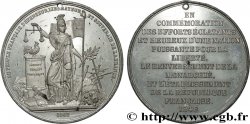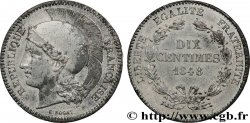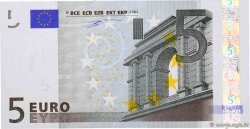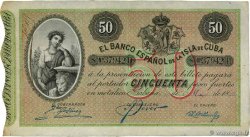fme_943996 - II REPUBLIC Médaille, Honneur aux vainqueurs du siège de Lille
25.00 €(Approx. 28.25$ | 21.75£)
Quantity
Add to your cart

Type : Médaille, Honneur aux vainqueurs du siège de Lille
Date: 1848
Metal : silver plated brass
Diameter : 28 mm
Orientation dies : 12 h.
Weight : 5,31 g.
Edge : lisse
Puncheon : sans poinçon
Coments on the condition:
Patine hétérogène avec une bonne partie de son brillant de frappe. Quelques taches d’oxydation et de l’usure sur les reliefs
Catalogue references :
Obverse
Obverse legend : HONNEUR AUX BRAVES LILLOIS DIGNES ENFANTS DE LA FRANCE // SOUVENIR / DU / BANQUET FRATERNEL / 8 OCTOBRE / 1848.
Obverse description : Légende circulaire et en 5 lignes.
Reverse
Reverse legend : *REPUBLIQUE FRANÇAISE* / LIBERTÉ/ EGALITÉ / FRATERNITÉ // 55ME ANNIVERSAIRE / DU MEMORABLE / SIEGE DE LILLE.
Reverse description : Inscription circulaire. Bonnet phrygien et fil de plomb encadrant une inscription en trois lignes .
Commentary
Diamètre sans bélière : 24,5 mm
La Révolution de 1848 se déroule à Paris les 23, 24 et 25 février 1848. Sous l'impulsion des libéraux et républicains et suite à une fusillade malheureuse, Paris se soulève pour la deuxième fois en moins d’un siècle. Louis-Philippe, refusant de lancer l’assaut sur les Parisiens, est contraint d'abdiquer en faveur de son petit-fils le 24 février. Mais les révolutionnaires imposent un gouvernement provisoire républicain, tuant la Monarchie de Juillet et créant la Deuxième République le 25 février 1848.
La Révolution de 1848 se déroule à Paris les 23, 24 et 25 février 1848. Sous l'impulsion des libéraux et républicains et suite à une fusillade malheureuse, Paris se soulève pour la deuxième fois en moins d’un siècle. Louis-Philippe, refusant de lancer l’assaut sur les Parisiens, est contraint d'abdiquer en faveur de son petit-fils le 24 février. Mais les révolutionnaires imposent un gouvernement provisoire républicain, tuant la Monarchie de Juillet et créant la Deuxième République le 25 février 1848.








 Report a mistake
Report a mistake Print the page
Print the page Share my selection
Share my selection Ask a question
Ask a question Consign / sell
Consign / sell
 Full data
Full data












